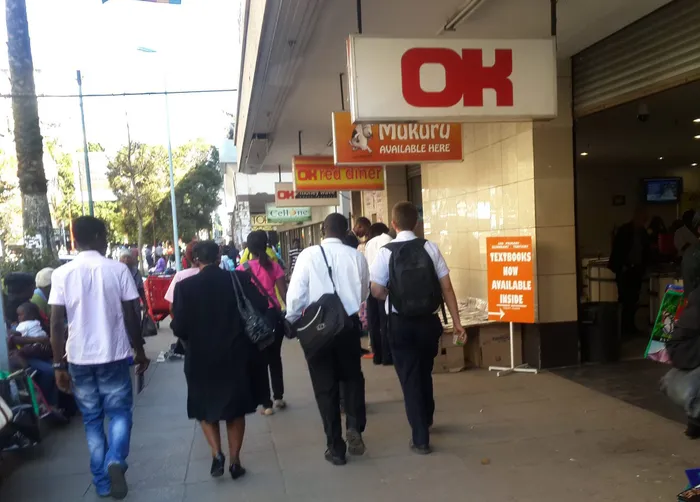OK Zimbabwe posts R500 million loss as revenues halve amidst tough retail conditions
RETAIL

The retailer, which competes against Pick n Pay-branded outlets in a tightening market, said on Tuesday that the performance was impacted by supply chain disruptions, currency volatility, and increasing competition from informal traders.
Image: Tawanda Karombo/Independent Newspapers
Tawanda Karombo
Zimbabwe’s largest retailer, OK Zimbabwe, has reported a sharp slump in earnings, with full-year revenues to March 2025 plunging 53% to $240 million (R4.1 billion), pushing the group into a loss of $29.6m (R511 million).
The retailer, which competes against Pick n Pay-branded outlets in a tightening market, said on Tuesday that the performance was impacted by supply chain disruptions, currency volatility, and increasing competition from informal traders.
In the full year to March 2025, OK Zimbabwe performed a comprehensive impairment review of its cash-generating units (CGUs), recording an impairment of $10.3m due to “constrained operational capacity” which resulted in some stock-outs.
The impairments were mainly a result of the recoverable amounts of certain cash-generating units being “lower than their respective carrying” amounts.
Additionally, a net exchange gain of $13.5m emanated from a re-measurement of monetary liabilities after the Zimbabwe Gold currency devalued.
“The decline is attributed to supply chain disruption, unstable exchange rate especially in the first half of the year, liquidity crunch in the economy and heightened competition from the informal sector compounded by exchange rate controls that distorted pricing,” said Hebert Nkala, chairman of OK Zimbabwe.
The Zimbabwean retailer explained that the supply chain disruptions experienced were occasioned by the company failing to settle suppliers’ accounts on time. As a result of this, suppliers withheld deliveries while others demanded payment upfront, impacting on the store operator’s operational capacity.
In an effort to halt the financial slide, OK Zimbabwe has had to close some stores, trimming its workforce in the process. This saw group’s overheads reducing by 51.21% over prior year.
However, “this was not enough for the group to be profitable as revenue contracted at a much faster rate than operating” costs. Significant expense increases included fuel, repairs and maintenance as a result of increased reliance on generators due to persistent power outages.
“Overhead reductions were achieved through headcount rationalisation to align staffing levels with productivity requirements,” explained Nkala.
“In addition, the group implemented branch rationalisation measures, which included the closure of the Borrowdale and Avondale Food Lovers Market (FLM) stores, the closure of all Alowell stores, and, in the second quarter, the closure of further underperforming stores in Banket, as well as the commencement of the closure process for Bon Marché Marondera.”
The retailer is now engaging property owners it leases as well as other service providers on possible restructuring of rentals and fees to factor in the economic situation of the company. Other Zimbabwean companies such as Econet Wireless have previously asked suppliers to cut their fees by 10%, citing tough economic conditions.
To survive the current situation, OK Zimbabwe has entered into supplier finance arrangements with financial institutions in the country. Under this arrangement, the finance institutions will cover suppliers’ invoices when the retailer fails to settle invoices on contractual due dates.
“The finance provider pays the supplier the invoiced amounts on or shortly after the due date, and the group subsequently settles the amounts directly with the finance provider at a later agreed date,” said the company.
“The suppliers bear the financing costs of obtaining early settlement from the finance provider (while OK Zimbabwe) incurs incremental interest expense under the arrangement should it fail to meet the finance provider settlement date.”
Still, OK Zimbabwe noted that the current operating environment was still characterised by challenges that include high inflation and exchange rate volatility, reduced consumer liquidity, power supply disruptions, and tight credit conditions.
Due to this, it will continue to review the performance of individual stores with a view to close those non-performing in addition to implementing revenue growth initiatives, with the current revised product mix improving margins while digital sales channels are being rolled out.
BUSINESS REPORT